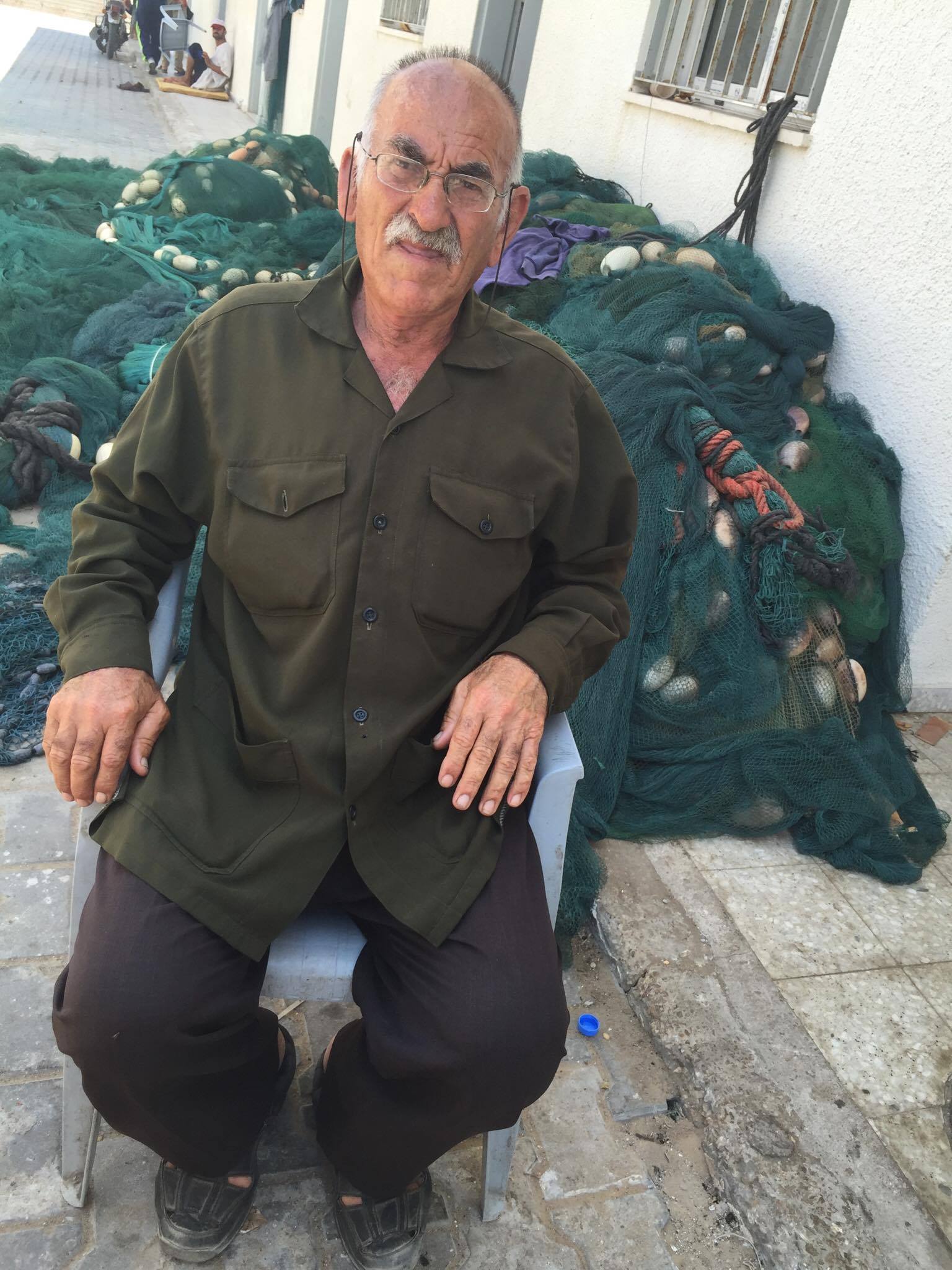By Tarneem Hammad, in Gaza. This article is from our partners at We Are Not Numbers.

Solidarity with Gaza fishers is proud to introduce the last in the series of stories featuring the work of these young Palestinian journalists.

The story told to me by Rashad Al-Hissi:
On Wednesday, January 4, my 13 cousins, sons and nephews sailed toward my boat, moored off the coast of Beit Lahiya in the northern Gaza Strip. I have two boats, one that stays anchored in the sea and another that we sail parallel to it. When we turn on our searchlights, the fish swarm to the space between them; they love the calmer waters.
Everyone except my cousin, Mohammad Al-Hissi, stayed on the moored boat at the four-nautical-mile limit imposed by the Israelis. But he sailed a little further out, to five nautical miles–still within the permitted fishing zone. Both boats were about 250 meters away from the Israeli border. There are always Israeli patrol vessels around, and we are even used to shooting. That doesn’t stop us from fishing. But this time was different.
I am getting old and stayed home. At 2 a.m., my wife woke me from sleep. “Rashad…wake up,” she said urgently. “What’s wrong?” I immediately asked. “Mohammed…The boat…,” my wife stuttered. I jumped up, hitting my head against the door. I thought at first something had happened to my son. But it was my cousin. It doesn’t really make any difference though. Now, all of us are without our main boat. Without it, we’re all useless.
It turned out that a navy vessel weighing 60 tons and traveling at a speed of 80 kilometers per mile hit my boat, splitting it in half. When I heard the news, my heart plummeted. I got dressed in a hurry and headed to the sea. I couldn’t believe how fast life can change; in just a few seconds, we had lost our boat. I built that boat in 1982 when all of the materials were cheap, costing me only $45,000. It was 17 meters in length and could carry a load of 15-17 tons. A boat is like a child; you take care of it. I bought new searchlights—each one now costs $100—and a new generator, costing $22,000. Today, the price of my boat is estimated at $100,000.
The sea cannot be a place of hope as long as it’s a place of losses. You may judge me negatively if I say I wish it was me or one of the fishermen instead of the boat that was lost. However, the bitter truth is that if I died, everyone would help my children and my wife, and if any one of the fishermen died, we’d all support his family. But since the boat sank, 27 people (13 fishermen and their families) will not be able to eat.
That’s the truth about the Israeli occupation: They kill you while you’re searching for life, they strangle you while you’re breathing and they stand halfway between you and your livelihood. Palestinian fishermen searched for my cousin Mohammed for three days, but his body was never found. We believe he was injured and sank; otherwise he would have resurfaced.
The Israelis said the attack that destroyed the boat was an accident due to horrible weather conditions, but what are the chances of a mistake happening when Israel has the best technological equipment? When there were searchlights on the boat that could be seen very clearly? The Israeli vessel circled around our boat and they knew there was someone on board; the fishermen on my other boat saw the Israeli vessel sailing directly toward Mohammed.
Mohammed was just 33 years old, a father of three kids who now suffer from poverty. It took four months and was very difficult for his family to get his death certificate because we couldn’t find his body. There is no proof he is dead.
The Israeli-imposed fishing zone (3-6 miles) is too small for the large number of Gazan fishermen, forcing us to deplete the breeding grounds. Fish like to swim in quiet areas, but there there is a large number of fishermen working the same area. So, most of the fish escape to areas further away, where we are not allowed to sail. In the past, I used to sail to a different area each month, following one type of fish. The fish would be patient with me, letting me catch them for two months, then move to a quieter area. Now, though, I can’t follow any type of fish—the permitted fishng zone is too small. Plus, many types of fish are extinct now.
Back in the ‘70s, we used to fish the entire year, catching 20-30 tons daily, But this year is almost over and our catch is less than one ton. Year by year, the numbers of fish are declining and the lives of fishermen are getting worse.
I’ve been a fisherman since 1954. Wherever I go, I’ll work as a fisherman because that’s the only thing I can do. Like the sea—filled with loss and pain, but also beauty and peace—fishermen will never rest.


















